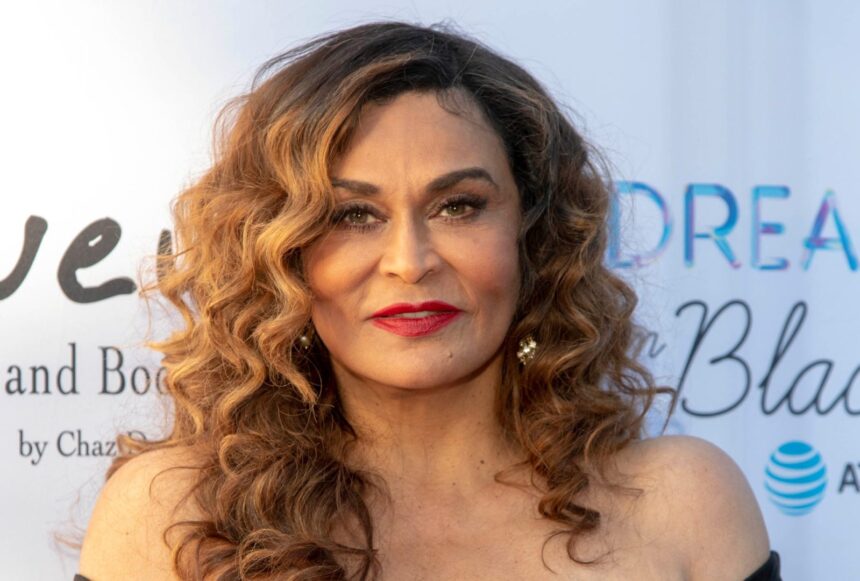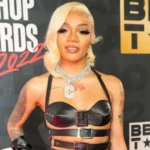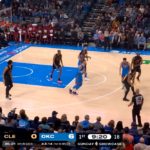In an unprecedented social media confrontation, conservative commentator Candace Owens has sparked a heated debate by claiming that Renaissance artist Beyoncé received $10 million to endorse Vice President Kamala Harris in the upcoming 2024 presidential election. This controversial assertion immediately sent shockwaves through both political and entertainment spheres, prompting a fierce response from Tina Knowles, the superstar’s mother and longtime defender of her daughter’s reputation. The timing of these allegations, amid an increasingly polarized political landscape, has added fuel to an already contentious pre-election atmosphere.
Maternal defense and fact-checking
The controversy intensified when Tina Knowles launched a detailed rebuttal on Instagram, systematically dismantling Owens’ claims. With the precision of a seasoned PR professional, Knowles revealed that her daughter not only declined any compensation for her Houston rally appearance but also personally covered all associated travel expenses. This revelation added a new dimension to the narrative, highlighting the complex intersection of celebrity influence and political engagement. Industry insiders note that such transparency about financial arrangements is unusual in the entertainment world, making Knowles’ defense particularly noteworthy.
Social media battlefield
As the dispute unfolded across multiple platforms, Owens stood firm on her allegations, defending her use of the word “allegedly” in her original post. The commentator’s response on The Neighborhood Talk further escalated tensions, suggesting that Beyoncé’s team had leveraged their influence to suppress dissenting voices. This exchange exemplifies the growing power struggle between traditional media narratives and social media influence. Digital media experts point out that this incident reflects a broader trend of political discourse moving from traditional platforms to social media, where verification standards often differ significantly.
Celebrity influence in modern politics
The confrontation illuminates the evolving role of celebrity endorsements in political campaigns. As public figures increasingly leverage their platforms for political advocacy, questions about authenticity and motivation become paramount. Political analysts observe that celebrity endorsements have evolved significantly since the 2020 election cycle, with increased scrutiny on financial arrangements and motivations. The incident has sparked widespread discussion about the responsibilities that come with celebrity influence and the potential impact on voter perception, particularly among younger demographics who often look to entertainment figures for political guidance.
Digital age implications
In today’s hyperconnected world, the speed at which misinformation can spread presents unique challenges. Social media platforms have become battlegrounds where facts and fiction often intertwine, requiring users to exercise heightened critical thinking. Platform algorithms can amplify controversial content, making it difficult to distinguish between verified information and speculation. The rapid spread of Owens’ allegations demonstrates how quickly unverified claims can gain traction in the digital age.
Media literacy lessons
This high-profile clash underscores the vital importance of media literacy in contemporary society. As consumers navigate an increasingly complex information landscape, the ability to distinguish fact from fiction becomes crucial. Educational experts emphasize that such public disputes can serve as valuable teaching moments about source verification and critical analysis of social media content. The incident highlights the need for improved digital literacy education at all levels of society.
Future of celebrity endorsements
Looking ahead to the 2024 presidential election, this controversy raises important questions about the future of celebrity political endorsements. Campaign strategists are closely watching how this incident might influence future celebrity involvement in political campaigns. The dispute may lead to more structured frameworks for celebrity political engagement, including clearer disclosure requirements and verification processes for political appearances.
Cultural impact analysis
The dispute transcends mere political disagreement, touching on broader themes of race, influence, and power in American society. It highlights the unique challenges faced by high-profile Black women in both entertainment and politics, as they navigate complex intersections of public perception and personal integrity. Sociologists note that this incident reflects ongoing tensions about representation and voice in American political discourse.
Evolving media landscape
The controversy has prompted major social media platforms to reassess their fact-checking protocols and content moderation policies. Media watchdogs are using this case to advocate for more stringent verification requirements for political content shared by influential figures. The incident may lead to new industry standards for handling politically sensitive content on social platforms.
Long-term implications
As the 2024 election cycle progresses, this incident may serve as a turning point in how celebrity endorsements are handled and scrutinized. The transparency demanded by both sides of this dispute could set new precedents for political engagement in the entertainment industry. Campaign managers and celebrity publicists are likely to develop more robust verification systems to prevent similar controversies in the future.









